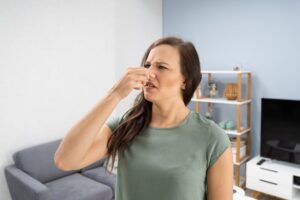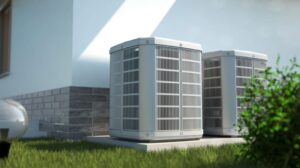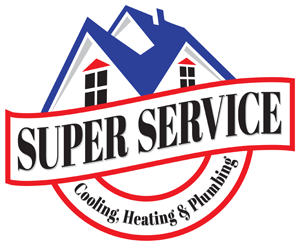Top 5 Indoor Air Quality Threats in Las Vegas, NV
Indoor air quality is a top concern for many homeowners, where the air inside can be more polluted than the air outside. Many things contribute to poor indoor air quality, but here are the five most common threats in Las Vegas, NV:
Passive Smoke
Secondhand smoke is one of the most dangerous indoor air contaminants. It’s a known carcinogen and can cause many health problems, including respiratory infections, asthma and heart disease. Smoke doesn’t just come from cigarettes, either; it can also stem from burning food while cooking, for example.
You can use home air purifiers to remove smoke particles from the air. For example, high-efficiency particulate air (HEPA) filters are particularly effective at trapping smoke particles. Thus, using a home air purifier can help reduce your exposure to secondhand smoke.
You can also reduce your risk of exposure by not smoking indoors and by asking visitors to smoke outside. Furthermore, when looking for an apartment or a hotel, it would be wise to choose a non-smoking unit. Otherwise, you may unknowingly be exposing yourself to high levels of secondhand smoke.
Carbon Monoxide
Carbon monoxide (CO) is a colorless, odorless gas produced whenever fuel burns. CO affects your indoor air quality if there’s incomplete combustion in your home, such as from a gas stove, furnace or water heater.
CO poisoning can cause a variety of symptoms, including headaches, dizziness and nausea. In extreme cases, it can lead to death. Install CO detectors in your home and near sleeping areas to protect yourself and your family from carbon monoxide poisoning.
Additionally, make it a habit to schedule maintenance for your gas-burning appliances regularly. A professional can help you inspect and clean them annually to ensure they’re operating safely and not emitting excessive CO.
Nitrogen Dioxide
Nitrogen dioxide (NO2) is a gas produced whenever fuel burns. It’s commonly found in car exhaust and tobacco smoke. High levels of NO2 can cause respiratory problems, including bronchitis, emphysema and asthma.
You can reduce your risk of exposure by not smoking indoors and keeping your car windows up when driving in traffic. Additionally, when cooking with gas, ventilate your kitchen well by opening a window or running the exhaust fan.
Remember, if you have an indoor air purifier, choose one designed to remove NO2. For example, activated carbon filters are effective at trapping NO2 molecules. Therefore, using an air purifier can help reduce your exposure to this harmful gas.
Lead Particles
When toxic lead-based paint starts to chip and crumble, it can release lead particles into the air. You could inhale or ingest these particles, and they can cause serious health problems, including brain damage, developmental delays and learning difficulties.
If you live in an older home, you should have your paint tested for lead. If it contains lead, you’ll need to take special precautions when renovating or painting to avoid exposure. Also, it would be wise to have your family tested for lead poisoning if exposed for early treatment.
Radon
Radon is a naturally occurring gas that can seep into homes through cracks in the foundation. It’s invisible and odorless, so the only way to know if you have radon is to test for it. Radon exposure is the leading cause of lung cancer in nonsmokers.
If you’re concerned about radon, you can have your home tested. It’s vital to mitigate the gas and protect your family if you find high levels. For instance, you may need to install a radon fan to ventilate your home or seal cracks in the foundation.
When it comes to indoor air quality, it’s important to be proactive. These five threats are some dangers that could lurk in your home. Contact Super Service Cooling, Heating & Plumbing to learn how our HVAC maintenance services can help you improve your home’s air quality.
Image provided by iStock
You May Also Like

5 Furnace Odors You Can’t Afford to Ignore in Paradise, NV
A bad-smelling furnace isn’t only a nuisance but can also signal something is wrong. If your furnace Paradise, NV, is emitting any… Continue Reading 5 Furnace Odors You Can’t Afford to Ignore in Paradise, NV…

Why Is My Heat Pump Short Cycling So Much?
Ordinarily, your heat pump should move through cycles of action and rest in response to the temperature changes occurring in your Spring… Continue Reading Why Is My Heat Pump Short Cycling So Much?…

Why Is My Heat Pump in Enterprise, NV, Freezing Up?
During the fall in Enterprise, NV, it can still be hot. That’s why you need to have your heat pump in good… Continue Reading Why Is My Heat Pump in Enterprise, NV, Freezing Up?…





